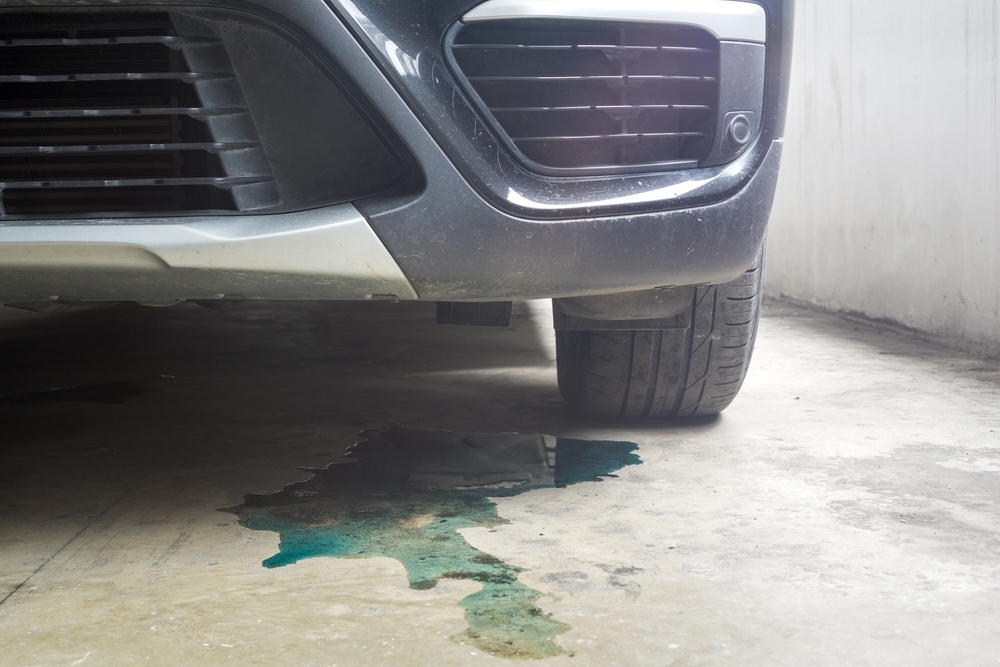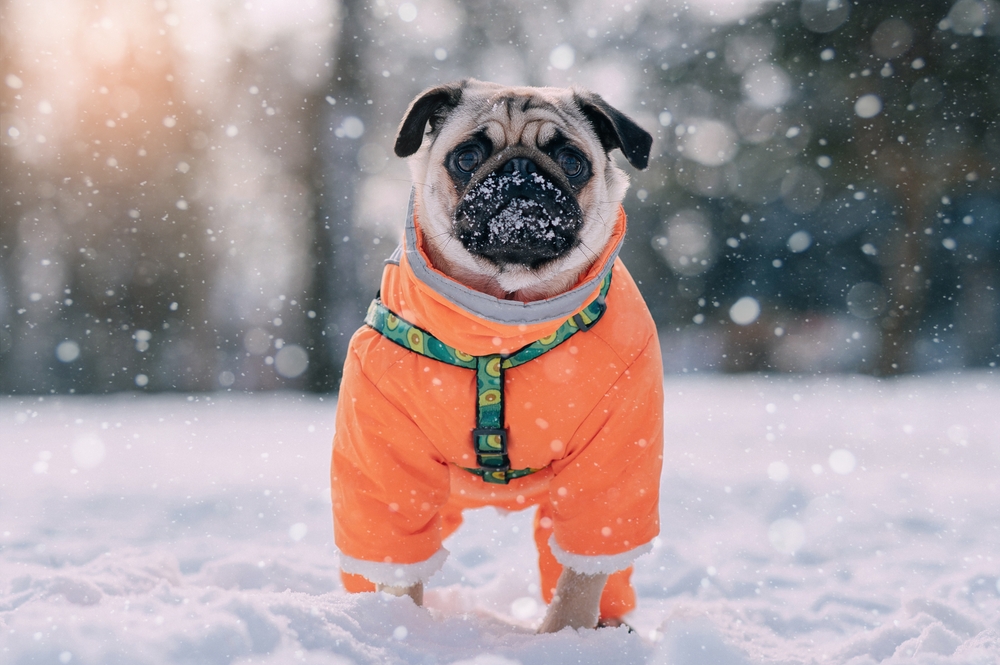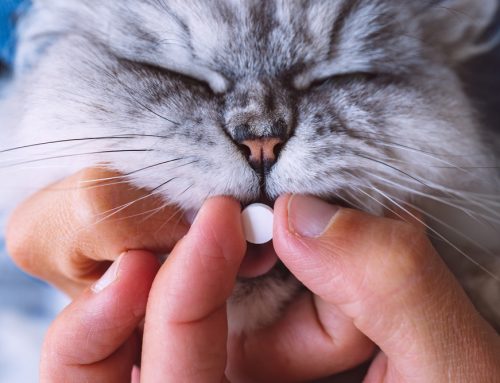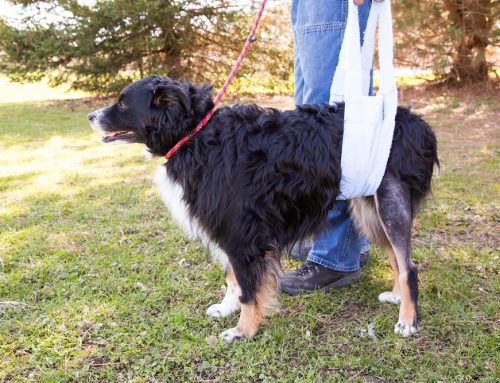Idaho winters bring chilly temperatures and harsh weather conditions, which can be uncomfortable—and dangerous—for pets. Like you, your pet can be affected by the cold weather, and you are responsible for protecting them from the elements. Follow our Alpine Animal Hospital team’s do’s and don’ts to ensure your pet stays safe, warm, and healthy during the cold winter months.
DO determine your pet’s cold tolerance
Determining your pet’s cold tolerance requires an understanding of their health and breed-specific traits. Consider the following:
- Breed — Some breeds are naturally equipped for cold weather, such as Alaskan malamutes and Saint Bernards, with their dense, insulating fur; whereas other breeds, such as greyhounds or dachshunds, have fine coats and are vulnerable to the cold.
- Size — Small pets have a high surface-area-to-weight ratio, which causes them to lose heat more quickly than large dogs. Additionally, small pets’ bodies are close to the cold ground and more likely to lose body heat.
- Age — Puppies and senior pets have difficulty regulating their body temperature and may get cold more quickly than adults.
- Health — Certain health conditions, such as endocrine and metabolic disorders and heart and kidney disease, make body temperature regulation difficult.
Every pet’s cold tolerance differs, so watch your pet for discomfort, hypothermia, and frostbite signs. Bring your pet inside if you suspect they are experiencing either of these conditions:
- Hypothermia — When your pet’s normal body temperature—101 to 102.5 degrees—drops below 99 degrees, they experience mild hypothermia. Severe hypothermia occurs when their body temperature drops below 82 degrees. Initial signs include increased heart rate, followed by a slow heart rate, delayed reflexes, sluggishness, paleness, dilated pupils, and unconsciousness.
- Frostbite — Frostbite is tissue damage caused by extreme cold. Signs include swelling and pain in the affected area, discolored (e.g., blue, grey) skin in the affected area, stiffness, and skin blisters or ulcerations.
DON’T leave your pet unattended in a vehicle
Your car is like a refrigerator in cold weather, and a pet who is left alone in a cold vehicle is at risk for rapidly developing frostbite or hypothermia. Avoid this risk by leaving your pet safe and warm at home when you run errands.
DO dress your pet warmly
Some people assume their pet’s coat provides enough insulation to keep them warm, but if you have a small or short-haired pet, they likely will appreciate a warm sweater or jacket when heading out into the cold. A properly fitted waterproof jacket or vest helps trap your pet’s body heat to keep them cozy and warm.
DON’T let your pet play on icy surfaces
Frozen lakes and ponds are beautiful but can be dangerous for your pet. You cannot assess the ice’s strength and thickness just by looking at it, and a surface that might seem solid may be unable to support your pet’s weight. The water may appear frozen solid, but a pet who ventures onto a weak spot can easily fall through. Keep your pet leashed on walks to prevent them from running onto an unstable, icy surface.
DO keep antifreeze stored safely away from pets

Many people use antifreeze during cold weather to prevent their cars and pipes from freezing when temperatures are extremely low. Toxicity—caused by the antifreeze ingredient ethylene glycol—is a serious threat to cats and dogs. Unfortunately, the chemical has a sweet flavor that attracts many pets, and ingesting only a small amount can be toxic—and even deadly—for pets. Ethylene glycol is rapidly absorbed in the gastrointestinal (GI) tract and mostly metabolized in the kidneys. While your pet may not show obvious kidney disease signs for several days, early poisoning signs include:
- Nausea and vomiting
- Diarrhea
- Wobbling or incoordination
- Disorientation
- Increased heart rate
- Weakness
- Tremors
- Fainting
- Low body temperature
If you spill antifreeze, keep your pet out of the area and clean up quickly. In addition, rather than using antifreeze with ethylene glycol, use antifreeze that contains propylene glycol, which is nontoxic to pets. Remember, antifreeze poisoning in pets is a serious medical condition that requires prompt veterinary care. If you know or suspect your pet has ingested antifreeze, contact our Alpine Animal Hospital team or Animal Poison Control immediately.
Keep your pet warm and safe this winter by limiting their outdoor time when temperatures drop below 35 degrees, and keeping them inside in below-freezing temperatures. If you suspect your pet has hypothermia or frostbite, contact our Alpine Animal Hospital team immediately.







Leave A Comment